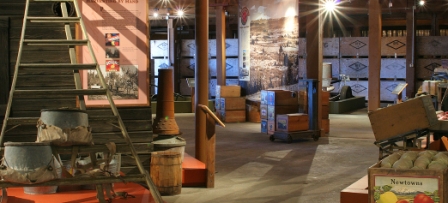 Most cities and towns have disaster plans for their residents. But in the scramble to save lives during a fire or flood, an entire town’s history can get left behind.
Most cities and towns have disaster plans for their residents. But in the scramble to save lives during a fire or flood, an entire town’s history can get left behind.
Oregon Heritage, a statewide partner of the Cultural Trust, has been awarded a Federal Institute of Museum and Library Services grant to launch Heritage MentorCorps, a program that allows regional mentors statewide to help libraries and archives prepare for natural disasters.
According to Oregon Heritage Coordinator Kyle Jansson, many smaller libraries and archives do not have disaster plans. In light of that, Oregon Heritage has recruited 35 mentors across the state, professionals with experience in collections care, including disaster preparedness. These professionals will be available by phone, email, and often in person, to offer training and advice to their colleagues, from John Day to Coos Bay and everywhere in between. “We are going statewide from Day One,” said Jansson.
The world of collections care is a fascinating one. “If an item from the Salt Lake Valley hasn’t seen much moisture and it’s in great shape, you want to keep it that way,” said Jansson. “Paper can be a challenge in Western Oregon because of the moisture, which can equal mold. And a general rule for storage is 30-50% humidity.” While more sophisticated operations can afford state-of-the-art storage systems, others cannot. That doesn’t mean they can’t employ simple solutions to keep damage at bay. “As an example,” said Jansson, “Don’t keep boxes on the floor. Even moving them up to a shelf, you’ve made a major step toward saving them in a flood.” Jansson emphasizes planning ahead. “Getting cultural institutions to talk with disaster management folks in their areas, that’s a goal,” he said.
Oregon Heritage receives an annual partnership grant from the Cultural Trust, funding which was instrumental, said Jansson, in providing the infrastructure for the project. “The regional technical assistance partners use Cultural Trust funds to provide assistance in underserved areas. These folks will be involved with this project too.” Without the Trust funding, Jansson said the agency might have still been competitive for the federal grant, “but it would have felt unsustainable to serve the whole state.”